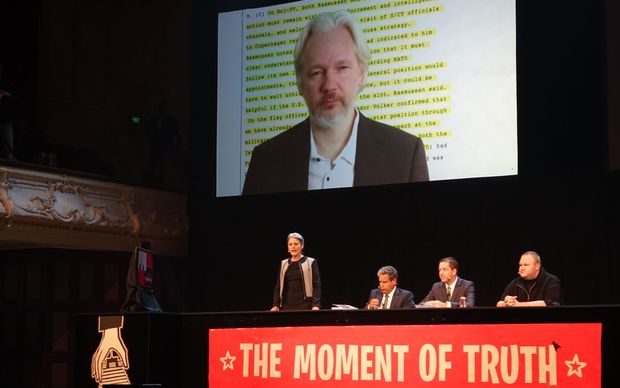 |
| Andrew Little; Blazed Intern; Phil Goff. |
Secondly I'm not a Labour person because, in the least offensive terms, they are a dated party. They're the oldest surviving political party, celebrating their 100th
this July. Now, this shouldn't be an issue itself, and it shouldn't be ammunition for New Zealand's Right
who have been saying the same thing for decades. I don't want to hear from you. You're worse, and you suck. Labour may be stuck in turn-of-the-century worker's values, but the
Nats are still in the Industrial age. I'm a progressive, I
think about economic systems that don't even exist yet, and nothing
makes me shake my head more than the irrelevant values of a Tory. But anyway, that's what this article is all about, because for so long, Labour have looked kinda old-fashioned in their policies
and plans, or, as Stuff commenters have put it, 'want to 'take us back to the 1950's'.
 |
| 'Timmy, one day you'll grow up and leave this shitty decade. You'll be glad you did and never look back.' |
But Labour have
recently deviated from this stereotype - and in a huge, huge way. They're actually trying to become relevant again, the sorry bastards! How dare they? But here's the shocking part: they might actually succeed. Now, I
don't consider myself a Labour person, but under Andrew Little's caucus - and this is going to sound cheesy as fuck, but they
have been further looking like the party of the future. And no, by
future, I don't mean a chrome-coated landscape where everything comes
in pill form. I'm talking in regards to the serious implications of the near
future and how it relates to something both parties have fought over
since the beginning of democracy – the working class. I'm talking
about a future with mass-unemployment – a future which many
economists, futurists and other speculators tell us will come one
day, no matter which party is in charge. This meme makes me laugh:
 |
| 'Now keep those scales balanced while you stand there for two hours and think about what you've done.' |
So this all began with the 'Future of Work' conferences, which Labour
leader Andrew Little and right-hand man Grant Robertson began not too long after the election in
late-2014. This involved a wide-range of discussions, such as 'what
it means to be a worker'. This was obviously the subject of mockery by the Government, with John Key chortling at the beginning of the 2015 Parliamentary year:
"He's going to hold a workshop about what a job is. That is a novel concept for a Labour MP, I'm prepared to admit that."
Despite Key's jokes, it stuck in my mind. It may look funny at first, but 'what is a job' is actually turning out to be a very serious question. Sometime afterwards I listened to an amazing podcast on the subject, and as it turns out, this 'future of work' thing isn't
just a desperate attempt for Labour to look like they're thinking
about something to do. No, it's something serious. Google it and you'll have no
shortage of sources discussing the future of work, and how work is set to change as the decades fly by.
But moving back to Labour, one of their initiatives under this 'future of work' mentality is their controversial talks of a 'Universal Basic Income'. Basically, this is a guaranteed source of income to all New Zealanders, but there are many deviations from the formula. Imagine if everyone you knew got 200 bucks a week from the government. What would you do with it? What would your friends do with it? Before we get into further detail, let's just say there's no shortage of criticism. Those who accuse Labour of wanting a 'nanny-state' are howling at the party's proposal of giving everyone free money. Bill English said it 'would be very expensive and likely discourage work' whilst John Key has more subtly called it 'barking mad'.
But moving back to Labour, one of their initiatives under this 'future of work' mentality is their controversial talks of a 'Universal Basic Income'. Basically, this is a guaranteed source of income to all New Zealanders, but there are many deviations from the formula. Imagine if everyone you knew got 200 bucks a week from the government. What would you do with it? What would your friends do with it? Before we get into further detail, let's just say there's no shortage of criticism. Those who accuse Labour of wanting a 'nanny-state' are howling at the party's proposal of giving everyone free money. Bill English said it 'would be very expensive and likely discourage work' whilst John Key has more subtly called it 'barking mad'.
Except they're forgetting one thing: this idea is popular. Take a random example: a Radiolive poll had 80% of people voting in favour of a UBI for New Zealand. But I know what you're thinking, and no, this idea isn't just popular amongst the economically illiterate, entitled masses who want something for nothing. Labour's ideas are actually based on the schemes of prominent economist Gareth Morgan, and many parts of Europe are either adopting forms of UBI, or seriously discussing it. Now, I don't want to spend valuable typing time amassing references from different sources all around the world, because there are so many different voices and opinions broadcasted about it. I don't make this blog to report news - I'm not a journalist. But Google 'Universal Basic Income' and you'll see there's plenty of discussion to be had.
Now I must confess: I don't even know that much about Universal Basic Income - I'm not an economist, and I don't want to be. I would much rather jump onto a pike and bleed to death. But here's the thing: I love it when new ideas are put on the table - especially if they're ideas brought in from foreign intellectual people who probably have better things to do, but have decided to pay our isolated little country a visit. That's why I loved Kim Dotcom's 'Moment of Truth' display. No matter what you think of Dotcom and the surveillance subject, it was freaking awesome to have two famed whistleblowers and an award-winning journalist discussing intelligent subjects with the public. We should be honoured to have that kind of opportunity. And now we have been paid a visit by Guy Standing, an intellectual-as-fuck economist with a British accent so academic he could hold his own in a gangsta-rap battle with Richard Dawkins.
 |
| 'Now, Mr Assange has some shocking revelations about Kim & Kanye...' |
 |
| Guy Standing, seen here sitting |
Now, I can't exactly say I support their proposal or not. After all, they've admitted time and time again that they're only in 'speculative stages, but I bloody well appreciate that they're floating these ideas around. And I'm optimistic. I think Labour could pull this off. Not this proposal exactly, but these kinds of ideas. I think they could take this into 2017 and look more relevant, modern and forward thinking than any of the previous post-Clark leaders could accomplish. Andrew Little and his party have a long time to go before the election, and they have a lot more time to paint a pretty political picture that they can sell to the country, and it might just pay off. This has the potential to completely revitalise the party's brand, with the word 'Labour' garnering a whole new meaning for the job-deprived century ahead. I'll say one final time, that I am not a Labour person - but I wish them well, nonetheless.
I wish them all the best.


No comments:
Post a Comment